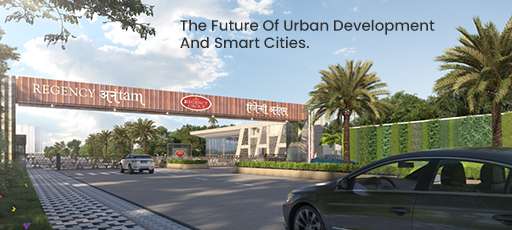Smart City- the term has become synonymous with the use of technology and data to improve various aspects of a city around the world, but its application in India has been less precise. Much of the early discussion assumed that smart cities would be completely new cities. In fact, the 2014 election manifesto of the government promised to build “100 new cities; empowered with the most up-to-date technology and infrastructure”.
As a result, when the Modi government announced its plan to build “100 smart cities,” it was assumed that India would get 100 new cities. The contours of India’s smart city policy were only clarified in June 2015, when the Smart City Mission was officially launched.
A year after its inception, it is evident that the Smart City Mission’s goal is not to build 100 new cities, but rather to make existing cities, and specifically certain special areas within them, smart. While each city is required by the Mission to have a pan-city initiative, the emphasis is on developing a compact area within a city through retrofitting or redevelopment of an existing built-up area or greenfield development of a vacant area.
While smart cities are now strongly connected with the Smart City Mission in India, the term’s ambiguity has been directed to it being applied to various types of urban development.
Mumbai’s Smart Cities:
Greater Mumbai, Navi Mumbai, Thane, and Kalyan-Dombivili are the four smart cities in the Mumbai Metropolitan Region under the Smart City Mission.
These cities’ smart city proposals focus on developing specific pockets of the city—Lower Parel in Mumbai and Koperkhairane in Navi Mumbai—as well as promoting the deployment of smart technologies. Surprisingly, the municipal corporations of a few of these cities had voiced concerns about the governance structure of the proposed smart cities, and therefore none of the cities in the region were ultimately selected in the Mission’s first round of funding.
In addition to the Smart City Mission, the City and Industrial Development Corporation, a state government agency, is developing the seven southern nodes in its Navi Mumbai (South) Smart City project: Kharghar, Kamothe, Kalamboli, Pushpak, Panvel, Ulwe, and Dronagiri. The Firm also has a 230-hectare greenfield urban development project located close to the new Navi Mumbai airport called Pushpak Nagar Smart City. The majority of developments in the Navi Mumbai Airport Impact Notified Area, which covers 561 sq. km are also promoted as a “smart city”.
Another state agency that has caught the smart city bug is the Mumbai Metropolitan Region Development Authority. It is transforming Mumbai’s Bandra Kurla Complex into a smart city by installing Wi-Fi, surveillance systems, and smart parking. It is also developing five smart cities along the proposed 126-kilometer Virar-Alibaug Multi-Modal Route: Vasai-Virar, Bhiwandi, Greater Kalyan, Greater Panvel, and Pen-Alibaug.
Smart City: An Urban India Branding Approach
As the case of Mumbai demonstrates, numerous smart city clones are being built in various locations. As a result, the plot on smart cities in India is not limited to the ones under the government’s Smart City Mission. Rather, the concept is being applied to a variety of modernist urban projects, including the construction of new cities, the application of innovation fixes to existing cities, the development of hubs along industrial routes, the segment of specific areas within a city, and the development of private townships. By using the term “smart city,” these various urban developments can better validate and market themselves.
Unplanned developments, an informal economy, and tangled local politics dominate Indian cities. In the post-liberalized era, this urban reality is increasingly being challenged by private capital seeking to reshape the nature of the city. Smart cities are being promoted by the state and the market in this context to create more ordered forms of urban development. As a result, the term “smart city” has become a trope for promoting a variety of capital-driven planned urban initiatives that are at odds with India’s dominant forms of urban realty.
Regency Group takes pride in providing benchmark quality, on-time project completion, and enhanced lifestyles, as well as transparency, and has established its credentials across the real estate vertical. The brand believes in offering sought-after real estate projects for those who look for luxury on a budget. With the evolution of smart cities in the MMR, Regency Group with its projects are ready to redefine real estate for good.

